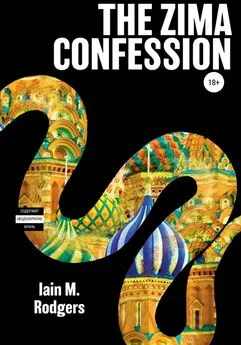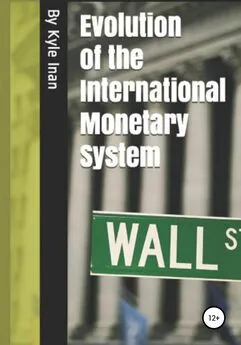Iain Rodgers - The Zima Confession
- Название:The Zima Confession
- Автор:
- Жанр:
- Издательство:неизвестно
- Год:2021
- ISBN:978-5-532-94751-1
- Рейтинг:
- Избранное:Добавить в избранное
-
Отзывы:
-
Ваша оценка:
Iain Rodgers - The Zima Confession краткое содержание
London 2013 – Richard is in London, working for a financial software company. He has held onto the Zima plan all this time and now knows how to make it succeed.
But does he know he’s fallen into a trap?
Содержит нецензурную брань.
The Zima Confession - читать онлайн бесплатно ознакомительный отрывок
Интервал:
Закладка:
But Eddie was never more calm than he was that day when Richard handed the codes to him. That day they had both been focussed on achieving something.
12. A Real Campaigner
To begin with, Eddie had been shocked Richard had come up with this plan. He was also somewhat suspicious of his motives. Eddie sometimes doubted if Richard was even a socialist of any sort. Stuart had vouched for him, though, and Stuart knew him better than anyone. Stuart was rock solid. A real campaigner.
So Eddie had decided it would at least be worth discussing the plan. After the discussion back at his flat, Eddie had been quite convinced that Richard was genuine and capable too. That was why he’d gone to the trouble of getting in touch with contacts that could make it happen. After the final meeting, as the months went by, he’d begun to have doubts again. But it was too late by then.
It hadn’t been too late at the moment Richard handed him the envelope. At that moment, all he had to do was nothing. Richard would never know he’d sabotaged the plan. But even though Eddie had his doubts, on balance he thought it was worth the risk of going through with it. His own personal risk was very limited. So he handed the envelope over. Before he did, Eddie did something to ensure that, even though Richard would have no idea who his handler was, at least his handler would know Richard – he slipped a photo into the envelope.
Eddie had noticed something about Richard – he didn’t quite seem to live in the real world. He talked about things as though they were academic or theoretical. Maybe that’s why he was so calm when they were sorting out the code words. Maybe the reality of the situation was hidden inside a whole abstract fantasy.
Eddie didn’t live in any fantasy world. He’d had a tough upbringing. He lived in a rough part of Glasgow. He knew every time they went on a march or handed out leaflets, there was likely to be someone who wanted to give them a good kicking. He also knew that what could happen to Richard might be a damned sight worse than taking a kicking from a few fascists.
13. Instructions
Though it was not yet five p.m. it was already quiet in the office. Most of them would leave early to try to beat the rush, or go for a drink so that the rush hour had died down before they actually set off home. The rush ‘hour’ in London starts around four p.m. and goes on until around seven p.m.
As Richard opened Mitchell’s drawer, he was aware Jim Callan was approaching down the corridor of the open-plan office. His heart sank. Should he close the drawer quickly? A brown envelope was the one and only thing in there. Should he try to pick it up before Callan saw him? It was too late for that. In any case, he was only looking into a drawer, for Christ’s sake, not stealing the Crown jewels. Just keep calm.
Jim Callan was not someone who would just come and casually talk to you. He would always plant himself strategically before you and puff himself up a bit before starting a conversation. He did that now.
“I thought that was Mitchell’s drawer.”
“Don’t know. It’s a hot-desk. I had the keys.”
Callan eyed Richard malevolently. Whatever he did, Callan always did it confrontationally. There was a long, intense silence as though Callan was a judge in a reality cookery contest and was about to vote Richard out.
“The hot-desks are over there.” He pointed to the area behind reception, near the managers’ glass cubicles and the break-out room.
“I guess they moved them. I was given this one ages ago. Maybe they did it by mistake,” Richard offered.
“What you need it for anyway?”
“I kept some tax forms and things here for safe-keeping while I was away in Moscow.”
Callan paused again, preparing to escalate the level of confrontation. But this time he seemed to realise it was none of his business anyway. He relaxed slightly, perhaps to catch Richard off-guard.
“How was Moscow?”
“Expensive. Painfully expensive. The per diems barely covered our food. We were all teetotallers by the time we were done.”
Callan allowed himself a little smile at this. All the consultants drank like fishes when they were away from home. “I mean how did the project go?”
“Not bad. The project’s still ongoing but they’re into phase three now. I’m back in the UK for a bit.”
“What’s next for you?”
“Nothing next as yet. I’m still at Oldhams, for a good while.”
“Did you know that project will be finishing up soon?”
“No?” Richard’s heart missed a beat. If he was moved on from Oldhams, what was the point in having the memory stick?
“Be careful.” Callan looked pointedly at him. Richard felt an involuntary spasm in his cheek. He wasn’t very good at this, he realised.
“There are a few redundancies coming up. Consultants need to be chargeable.”
“Don’t worry, I know that.”
With that, Callan decided to withdraw. Richard watched him move slowly and purposefully back up the corridor and re-enter his frosted glass cubicle. Callan was another of those on-contract project managers that rarely made an appearance in the office and seemed to have the vaguest workload. For some reason, Richard didn’t like him. He waited until he was sure Callan was settled into his cubicle before quickly picking up the envelope. Then he went down the service elevator at the back of the building to avoid having to pass Callan’s office.
Christ! If I’m made redundant, the plan’s over, he thought.
14. The Bridge
People swarmed towards Richard and bustled past. Most of the swarm was heading south, as he was, pouring out of the City, streaming across London Bridge and disappearing into the station named after it. But some of the most agitated and determined ones were, for some reason, going against the flow.
A seagull swept through the air, holding its wings out rigidly to be carried by the wind. Richard imagined what the seagull, looking down, would think of the human folly it observed.
And suddenly Richard too was high above it all, looking down on himself and seeing his stupid mistake with chilling clarity.
He was trapped. He could see the bridge spanning the Thames from north to south and the river itself beneath, running west to east. He could see himself, by now halfway across, being carried along with the flow of humanity – just another anonymous member of the multitude on the left-hand pavement, busily progressing to the South Bank. To his right, traffic flowed freely in each direction, and on the far right-hand side other members of the agitated nest bustled past each other.
His attention focussed on the person he knew to be himself. He could see through this person’s coat and into the pocket where the memory stick was clutched in his fist.
What if someone accidentally jostled him? What if a pickpocket decided that he was an easy target?
What if the members of the swarm, still blandly unaware of his intentions, somehow sensed the threat to their hive and turned on him?
He would lose a memory stick that was worth around a fiver, but was irreplaceable. He would lose his chance to change the course of history.
He saw the melee developing. From above he watched the swarm converging on him. Then, looking through his own eyes, faces full of fury. But that was from a future which, although it was foreseen, had not yet happened.
And then he felt a twinge of guilt. These were people, not members of a hive or nest. These were the very people he intended to destroy. Wealthy bankers, City workers, spoilt middle-class Londoners with pleasant jobs that all relied on financial services.
In his guilt he realised they would be justified in turning on him. It wasn’t likely; nevertheless he tried to think of a way of escape. But of course, there was no way of escape. He began to realise he was no more trapped here on the bridge than anywhere else. He would be vulnerable wherever he went. He just had to get home as soon as possible.
All he had to do was get himself, his laptop bag containing both envelopes, and the memory stick in his pocket, back home. But it wasn’t easy when every passer-by might somehow realise you were a ticking time bomb.
And then a surge of rage boiled up within him. It wasn’t easy when you gave in to feelings of guilt. He gripped the memory stick until he felt it would cut into his hand. These were the very people on whom guilt or pity was wasted. They had to be destroyed for the good of humanity.
15. Dreams
Richard slumped into a seat on the Jubilee Line. The train was packed and it had taken him several stops since getting on at London Bridge, to position himself to obtain such a prize. He had to use a few cunning moves to outsmart any of his competitors in a clandestine game of musical chairs.
Things like that gave your life a false sense of purpose. London was very good at giving you a general sense there was a buzz around and you were involved in its excitement. It gave you opportunity to think you had accomplished something. In fact, all it had to offer was illusory nonsense. Years could go past before you realised your life was actually empty.
But who said life had to have any meaning? Well, now, it did have meaning.
Today he was on the Jubilee Line because he had decided to walk from the office across to London Bridge tube station, as he sometimes did, hoping the walk would relax him. But it hadn’t helped at all; instead he had felt an increasing sense of panic and paranoia while walking through the crowds of people, that some- one, perhaps everyone, knew what he was up to. Slumping into his seat, and giving the memory stick another squeeze to make sure it was still there, Richard finally began to relax a little.
A lot had happened in the years since he was an activist. Everything had changed. He wondered if he still wanted to go through with it. Of course he did. Things were worse than ever nowadays. The attempts that capitalism had made to save itself had proved futile.
Capitalism was failing to satisfy the advertising-induced greed of developed countries. Nevertheless, it was claiming itself to be successful. Successful in raising the living standards of poorer nations. This process had been given the label of “globalisation”.
Successful? The world population was projected to peak at fifteen billion. Imagine fifteen billion people trying to live in the style of the USA! It would not be physically possible for the planet to provide the raw materials. It was doomed to failure. Catastrophic failure.
Meanwhile, the banking and financial systems, perhaps in combination with IT, were concentrating wealth and power into the hands of fewer and fewer people worldwide. The funny thing was that, because of taxation, this wealthy elite actually felt they were supporting the rest of the population, instead of it being the other way around. The wealthy elite were now so wealthy compared with the rest that they paid a significant percentage of total taxation, and therefore believed they supported, rather than exploited, the masses. They seemed to have overlooked the fact that the cause of this was the masses not being paid enough due to their exploitation. Eventually, there must be a breaking point. Either the elite would break away from the rest of the population, deliberately using social spending and welfare as a means of suppressing them, or there would be revolution. That, he reminded himself, was why he was not a Social Democrat. Welfare abuse was their raison d’être. He was no longer an activist either. He had been sleeping. In fact, Richard was a card-carrying member of the Conservative party. His reasoning was that since capitalism would destroy itself through its internal contradictions, he should help it along as much as possible. It was like being an actual socialist without the hypocrisy, he reasoned. Or, actually, it was like being a capitalist – with both hypocrisy and irony.
Читать дальшеИнтервал:
Закладка:










